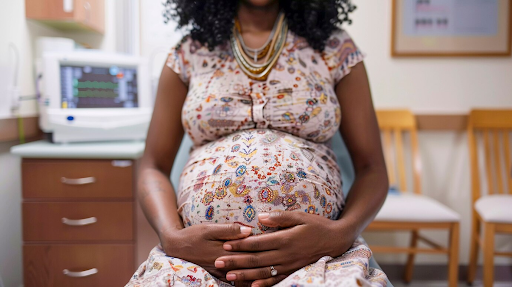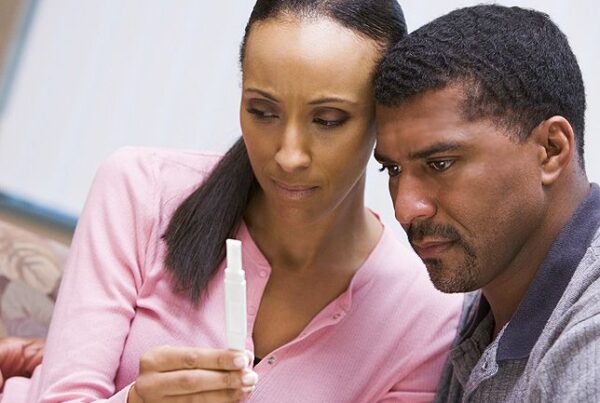One of the most topical issues connected to female factor infertility is age. When talking about female infertility (and male infertility to a lesser extent) age is more than just a number. Fertility changes with age. The rule of the thump is: the younger, the more fertile; the older, the less fertile.
Last week, we examined the impact of endometriosis on female fertility. This week our focus will be on the role of age. What’s age got to do with it?
For a woman, age is probably the single most important factor that affects fertility and chances of conceiving and having a child.
Both men and women become fertile in their teens following puberty. For girls, the beginning of fertility is marked by the onset of ovulation and menstruation (menarche) and for men by production of sperms. After menopause women are no longer fertile however men have no definite cut-off for fertility like women but fertility declines all the same.
Age-related infertility is becoming more common because, for variety of reasons, many women are having their first babies and beginning their families in their mid-30s and beyond.
Although women are today healthier and better cared for than ever before, improved health in later life does not offset the natural age-related decline in fertility. In addition to increased difficulty with fertility, a woman’s chance of having a miscarriage also increases with age.
When this decline begins, often around age 30, most women do not usually realize that it is happening. Even though a woman may continue to have regular menstrual cycles until menopause, the ability to have children may have been lost five to ten years prior to menopause. Nearly one third of couples that include a woman of age 35 or older will have problems with fertility. And less than 30 percent of women over age 40 are able to conceive naturally.
While it is established that fertility does decrease naturally with age, the decline may not be steep enough to keep the vast majority of women in their late 30s from conceiving and having a child, however it is necessary to keep in mind that several women in their 30s and above would require assistance to conceive.
The explanation for this is connected to egg quality. A woman’s eggs are as old as she is because women are born with all the eggs they will ever have and that number decreases every month. So as a woman ages, her eggs age with her, diminishing in quantity and quality. Diminished fertility, also called diminished ovarian reserve, often reflects a decrease in number of eggs andquality.
With advancing age, it takes longer for a woman to conceive and as the risk of not being able to achieve conception increases, miscarriage, and complications in pregnancy and childbirth, also increases.
Women’s fertility runs in cycles, unlike that of men whichis constant. As a woman ages, her fertility decreases, this usually occurs slowly up until about 35 years of age, when fertility falls even faster. Chances of getting pregnant diminish gradually but significantly from about the age of 32. From age 35, fertility decline speeds up and by 40, fertility has reduced by half. At 30, the chance of conceiving each month is about 20 per cent. At 40 it’s around 5 per cent.
Pregnancy and birth complications and risk of Caesarean Section are also more significant risksfor older women who are more likely to give birth to babies with birth defects or genetic abnormalities.
A woman that is over 35 is nearly 2.5 times more likely than a younger woman to have a stillbirth. By age 40, she is more than five times more likely to have a stillbirth than a woman under 35. For a woman aged 40 and above, the risk of miscarriage is greater than the chance of a live birth.
The drop in fertility is seen even in women with perfectly normal, regular menstrual cycles. The average age of menopause is roughly from the late 40s to early 50s, by then, ovaries stop functioning and there are few or no eggs left.
In the few years preceding menopause, the body produces more FSH (follicle stimulating hormone) and LH (luteinizing hormone) due to a decrease in response of the ovaries to these hormones. Menstrual cycles become shorter and eventually stop altogether.
Factors that can also cause a decrease in the lifespan of the ovaries, making fertility after 40 even more difficult, include smoking cigarettes, chemotherapy or radiation from cancer treatment and diseases of the ovaries as well as surgeries involving the ovaries
There are blood and imaging tests available to determine the quantity and quality of a woman’s eggs. These tests are performed on specific days of the menstrual cycle and include blood tests to determine levels of different hormones. An ultrasound can also be performed to measure the ovary size and number of follicles.
For couples having IVF, the risk of not having a baby is more than five times higher if the male partner is above 45. The volume of semen and sperm motility (the ability of sperm to move towards an egg) decrease continually between as from the 20s.
Age is beyond human control, but we can control the decision sooner rather than later about whether we want a baby or another baby, or to be in a relationship. One way to try to overcome the effects of aging on fertility is through the use of assisted fertility treatments such as In Vitro Fertilization (IVF) or third party reproduction such as egg or embryo donation.
The good news really is that with advances in reproductive technology, including IVF and other forms of assisted conception, the chances of conceiving and carrying a child term can be improved. With IVF or other assisted reproductive technology, chances of falling pregnant are increased.
Preimplantation Genetic Diagnosis (PGD) is a method of testing embryos for specific genetic and chromosomal abnormalities before implantation and embryos can also be selected to give the greatest chance of pregnancy success.
A woman’s most fertile years are when she is in her 20s and early 30s andit is now possible to store unfertilized eggs for use in the future, using egg freezing. For women that need to postpone pregnancy, or whose fertility is at risk due to serious illness, eggfreezing offers great potential to have a family later in life.





